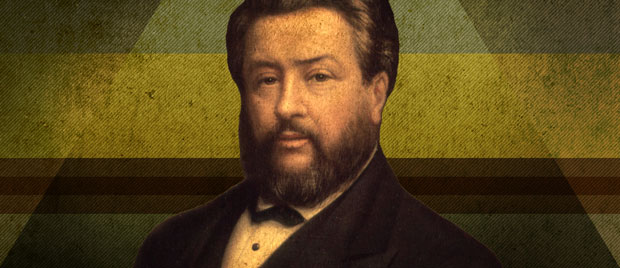Biblical Calvinism Should Evoke a Passion for Lost Souls

In the following excerpt from Steven Lawson's, The Gospel Focus of Charles Spurgeon, we see in the life and ministry of Spurgeon the fruit biblical Calvinism should produce: a passion for lost souls.
May this serve as a reminder and an encouragement to our evangelistic fervor.
It is clear that Charles Spurgeon believed the gospel must not be calmly presented as a mere set of facts. To the contrary, it must come as a bold proclamation with open invitations, tender appeals, sound reasonings, and compelling persuasions. Such presentations should include even authoritative commands and severe warnings to obstinate hearts and minds. Spurgeon did not shrink from this task but gloried in it. He declared: "I do not envy Gabriel his crown when God gives me souls. I have thought that I would rather be here to talk with you and point you to my Master's cross than be up there and cast my crown at His feet. For surely there can be no joy in heaven greater than the joy of doing the Master's will in winning souls for Him." Spurgeon delighted in earnestly pursuing the salvation of lost sinners.
If I was saved by a simple gospel, then I am bound to preach that same simple gospel till I die... —Charles Spurgeon
A sermon that does not win souls, Spurgeon felt, is a waste of a preacher's energy: "When that which comes of his sowing is unfruitful, the sower's work is wasted; he has spent his strength for nought. Preaching is the idlest of occupations if the Word be not adapted to enter the heart and produce good results. O my hearers, if you are not converted, I waste time and energy in standing here!" Simply put, Spurgeon felt that preaching that did not lead to conversions was pointless.
It is not merely that Spurgeon desired to see people come to faith in Christ. Rather, he had to see lost sinners saved. He affirmed: "The fact is, brethren, we must have conversion work here. We cannot go on as some churches do without converts. We cannot, we will not, we must not, we dare not. Souls must be converted here, and if there be not many born to Christ, may the Lord grant to me that I may sleep in the tomb and be heard of no more. Better indeed for us to die than to live, if souls be not saved."
Better indeed for us to die than to live, if souls be not saved. —Charles Spurgeon
Elsewhere Spurgeon emphatically said: "If sinners will be damned, at least let them leap to hell over our bodies. And if they will perish, let them perish with our arms about their knees, imploring them to stay. If hell must be filled, at least let it be filled in the teeth of our exertions, and let not one go there unwarned and unprayed for." For Spurgeon, no exertion was too excessive for the rescue of a soul from damnation.
In his evangelism, Spurgeon's supreme motivation was sovereign grace: "That is why we preach! If there are so many fish to be taken in the net, I will go and catch some of them. Because many are ordained to be caught, I spread my nets with eager expectation. I never could see why that should repress our zealous efforts. It seems to me to be the very thing that should awaken us to energy—that God has a people, and that these people shall be brought in." Knowing that God had elected some to eternal life, Spurgeon was confident and passionate in his gospel appeals.
Spurgeon believed strongly in this evangelistic thrust. He saw it as his chief purpose in preaching: "If I was saved by a simple gospel, then I am bound to preach that same simple gospel till I die, so that others may be saved by it. When I cease to preach salvation by faith in Jesus, put me into a lunatic asylum, for you may be sure that my mind is gone." He remained faithful to this mission throughout his ministry.
Excerpt adapted from Steven Lawson's The Gospel Focus of Charles Spurgeon. Available from ReformationTrust.com and now in the Kindle Store.